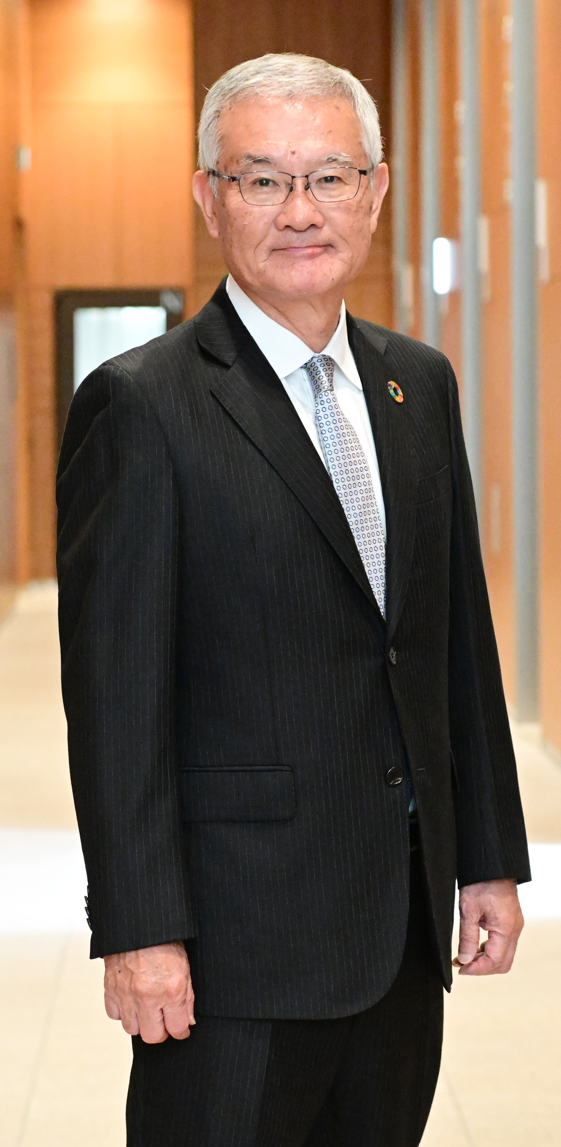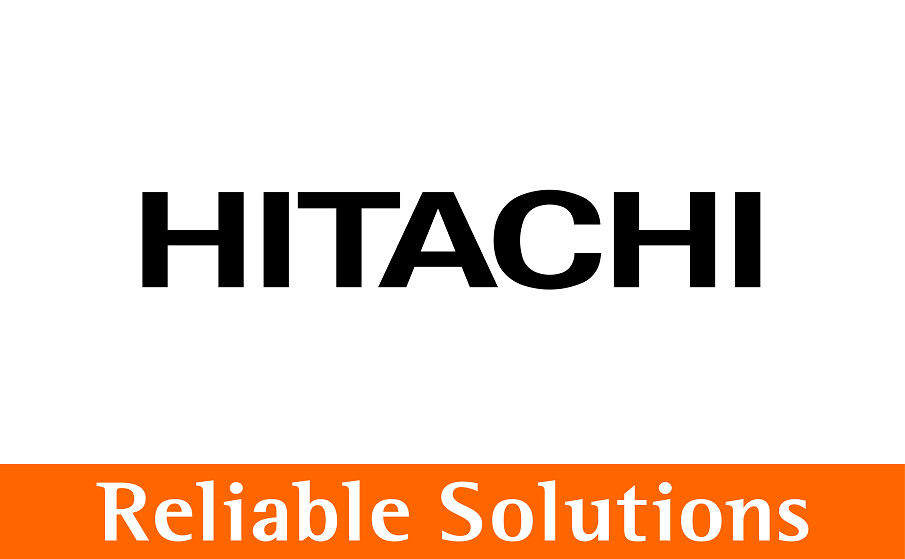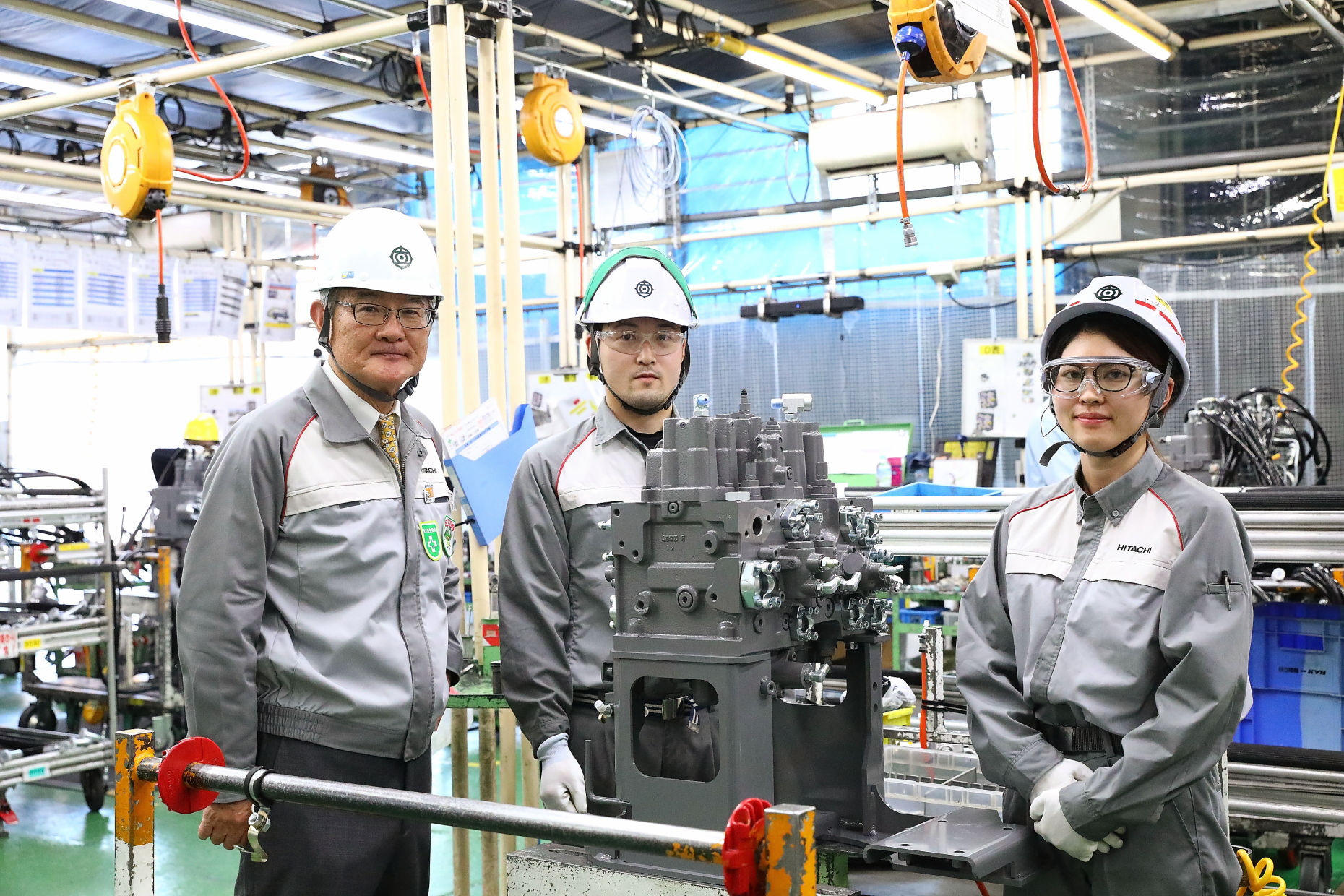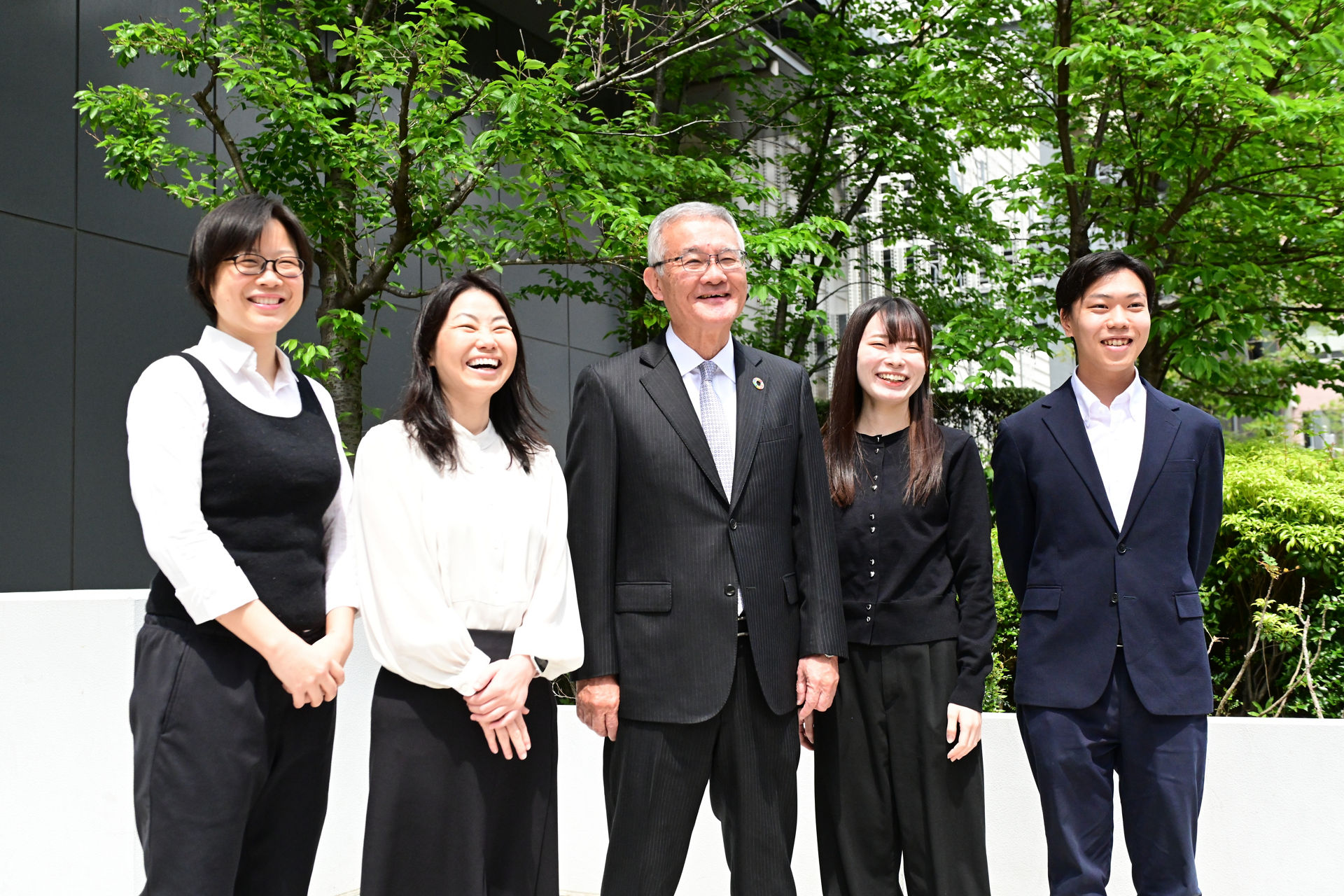CEO Message
CEO Message

I am convinced that LANDCROS is a mirror in which we can check our Kenkijin Spirit-based attitude and actions and a banner that guides us to take actions on our own will.
Representative Executive Officer,
Chairman and Executive Officer, Director, CEO
Kotaro Hirano
The Hitachi Construction Machinery Group is committed to being a company that proactively and directly addresses a range of on-site issues faced by customers and finds the best solutions for the issues in cooperation with the customers. In order to fulfill this strong commitment, we newly established the LANDCROS concept in July 2024. Based on our corporate vision, “Ensure a prosperous land and society for the future; Contribute toward realizing a safe and sustainable society,” we are determined to sincerely work to deliver innovative solutions while promoting co-creation with our customers and partners. In order to show this determination, we coined the word “LANDCROS.” “LAND” means all the land in which we get involved in our business and “CROS” stands for “Customer Reliable Open Solutions.” LANDCROS is a word that communicates the Group’s unshakable commitment to co-creating value that cannot be created on our own by cooperating with others to forge the future.
We created this concept against the backdrop of on-site issues that are becoming more complex and serious, including the difficulty of passing down the skills of machine operators to the next generation and of ensuring safety and increasing productivity as well as the rise in costs. Moreover, for the development of mines, there are a wide range of issues to be solved by our customers and ourselves, including the need for environmental consideration. Under these circumstances, we can no longer meet the true expectations of our customers only by providing them with machines and services, no matter how excellent in performance and quality.
We therefore need to evolve constantly as a partner to help customers solve their on-site issues in an integrated manner beyond providing them with ConSite-based solutions and specifically by sophisticating our machines based on the advanced use of ICT and promoting the automation and remote control of the machines by using information technologies, as well as by working for the optimal management of our customers’ fleets, including machines made by Other manufacturers
LANDCROS is not a mere brand name or a collection of functions. It embodies the expertise that we have accumulated on-site, the technologies that we have honed, and the relationships of trust that we have built with our customers. We are now in the phase of instilling this concept both internally and externally to implement it as a driving force for our next stage of business growth.
"Momentum for LANDCROS—Mission as the CEO and Organizational Evolution"
A key part of my mission as CEO is to create the concepts that lead us to the future and instill them deeply in our organizations, while renewing the entire Hitachi Construction Machinery Group’s values and behavioral patterns, beyond just formulating the management strategies for the Group. The LANDCROS concept is a symbolic example of this. I hope that LANDCROS will help employees change their mindsets and behaviors for the evolution and reform of their organizations.
LANDCROS is not a concept created based on my own ideas alone. I created it with employees over a long period of time by listening to the opinions of on-site workers and sincerely facing the reality of their work. Since becoming CEO, I have been constantly engaging in dialogue with employees and in the process, I strongly felt the need for them to share a concept that symbolizes on-site solutions that can be created by incorporating on-site opinions. LANDCROS was born as such a concept. Presently, the LANDCROS concept is widely incorporated in development, manufacturing and management strategies across the board as well as in sales and service strategies, and is expected to be further utilized.
In order to instill this concept, we are taking multifaceted approaches. For example, we worked to put the LANDCROS logo on our products toward “bauma 2025” the world’s largest-class construction machinery trade fair and also repeatedly communicated the significance of LANDCROS through our internal training and global meetings toward the implementation of the concept. These measures are expected to help instill LANDCROS across our organizations not as a mere corporate slogan but as a management concept that encourages on-site workers to change their behaviors.
"Collaborating with Startups to Gain More Speed in Business"
The LANDCROS concept is also being fostered in activities for co-creation with our external partners. Specifically, we are collaborating with startups and other technology partners in multiple development projects and demonstration tests in the field of remote control, autonomous driving and AI analysis. Beyond simply introducing new technologies to our organizations through these measures, we are encouraging our employees to gain more speed in their business activities and propel themselves to meet the expectations of their customers while embodying the LANDCROS concept. To this end, we are working to provide individual employees with an environment where they can recognize how they are contributing to their customers and society at large by implementing the LANDCROS concept in their work.
LANDCROS is a mirror in which we can check our Kenkijin Spirit-based attitude and actions and a banner that leads us to create new value for the future. No company can be reformed only by its top executives. For the reform of a company, employees’ understanding, support and ability to take actions on their own will are essential. We established the LANDCROS concept, expecting employees to demonstrate the ability to take actions on their own will, and our organizations are being steadily reformed thanks to the demonstration of such ability by employees.
For the Hitachi Construction Machinery Group to achieve further growth, the Group has things that it needs to change, as I mentioned in my message in our previous year’s integrated report. Specifically, we need to increase the speed of business management and to respond appropriately to changes in our customers’ ways of thinking. We have already succeeded in launching a business unit (BU) system in April 2022 as one of the measures to meet these requirements. In our conventional vertical business structure, there were invisible walls between the development, sales and production departments, making it difficult for them to share information and make decisions promptly. In order to break these walls, we have established a business unit for each product item and given the head of the BU responsibility for the development, cost management, production and sale of the product item in an integrated manner.
"Developing Human Resources and Sharing Values as the Basis of Organizational Reforms"
Under the newly established BU system, the heads of the BUs can now listen directly to the opinions of their customers and dealers and swiftly reflect their needs in the product specifications and price strategies, which I feel is quite effective for our business. For example, when a large order is placed by a customer for a specific model, the head of the BU in charge will promptly set the price and decide and implement the production schedule to speedily respond to the customer. This is indeed the practice of “on-site approach” for business management.
However, connecting our organizations horizontally entails the risk of diluting the expertise and functions that have been accumulated vertically, as well as the risk of immobilizing human resources. In order to avoid these risks, we must work on the development of human resources very seriously. Specifically, we need to provide not only personnel who are in senior positions, such as directors and executive officers, but also personnel who will be the next generation of management leaders with opportunities to work overseas and participate in cross-departmental projects to help them nurture the ability to think from the perspective of total optimization as well as from the viewpoint of their own sites. Going forward, we will establish in-house rules to promote labor mobility at each BU.
The key to succeeding in such organizational reforms is to share values. The Hitachi Construction Machinery Group has the Kenkijin Spirit as its global values and code of conduct. Employees are required to understand the vision of the Group and take actions autonomously in line with the Kenkijin Spirit, for which we are upholding three Cs, namely, Challenge, Customer and Communication as the keywords to be shared across the Group beyond language barriers. Even in this time of rapid change, the Spirit provides each of us with the guidelines to make decisions and take actions without hesitation. It is not a mere slogan but a basis on which we decide what to prioritize and how to behave in our daily operations and on-site.
I think it is necessary for us to have a sense of unity as an organization all the more because we are living in an age characterized by cultural and religious diversity. We have about 26,000 Kenkijin people working for the Group, who are cooperating with each other and working hard together based on the Group’s vision and in line with the shared values and code of conduct toward the direction shown in the medium-term management plan. I feel that the Group is showing its strength as one united team, for example when seeing employees who need to adjust their working hours for Ramadan being supported spontaneously by other employees.



